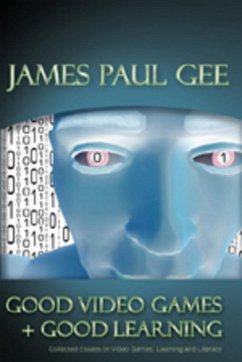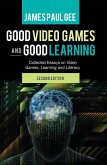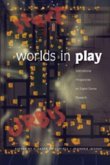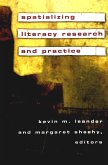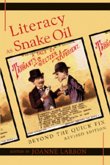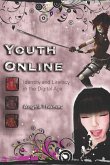This book discusses a broad range of topics concerning video games, learning and literacy. These include the ways games can marry pleasure, learning and mastery through the sense of ownership, agency and control players enjoy when gaming, as well as controversial issues surrounding games. The book explores relationships between values, identity, content and learning, and focuses on how to understand and explain many young people's differential experiences of learning in gaming and schooling respectively.
«Gee is at his masterful best in this brilliant collection. No one speaks with more insight and clarity when it comes to the learning potential of videogames. Gee seeks nothing short of a revolution; we will do well to follow his lead.» (Katie Salen, Associate Professor, Parsons the New School for Design; Executive Director, Gamelab Institute of Play)
«'Good Video Games and Good Learning' is packed with deep insight about games and learning. If you are creating games or studying them, if you are using games to educate or just want a sneak peek at the future of learning, then you must read this book. Gee doesn't focus on educational games: he shows how any good game is a context for learning - and conversely, what educators can learn from games. His aim is not to tell teachers how to teach, or to tell game creators how to make better games - but instead to bridge the gap between the two. In doing so, Gee presents essential ideas about game design and game experience, cognitionand pleasure, and learning both in and out of the classroom - all with the playful rigor and clear thinking we have come to expect from this eminent scholar (and expert player) of games. If you read one book on games and learning this year, read 'Good Video Games and Good Learning'. It will change the way you think about - and play - games.» (Eric Zimmerman, Co-Founder & CEO, Gamelab; and Co-Author,'Rules of Play & The Game Design Reader')
«'Good Video Games and Good Learning' is packed with deep insight about games and learning. If you are creating games or studying them, if you are using games to educate or just want a sneak peek at the future of learning, then you must read this book. Gee doesn't focus on educational games: he shows how any good game is a context for learning - and conversely, what educators can learn from games. His aim is not to tell teachers how to teach, or to tell game creators how to make better games - but instead to bridge the gap between the two. In doing so, Gee presents essential ideas about game design and game experience, cognitionand pleasure, and learning both in and out of the classroom - all with the playful rigor and clear thinking we have come to expect from this eminent scholar (and expert player) of games. If you read one book on games and learning this year, read 'Good Video Games and Good Learning'. It will change the way you think about - and play - games.» (Eric Zimmerman, Co-Founder & CEO, Gamelab; and Co-Author,'Rules of Play & The Game Design Reader')

